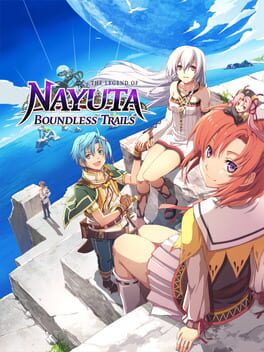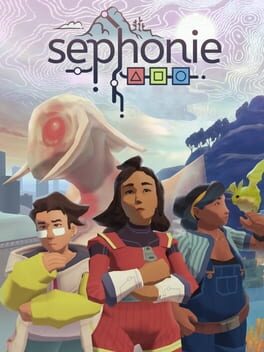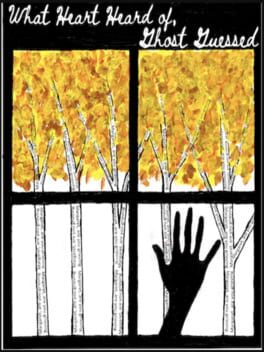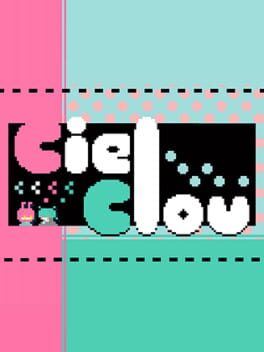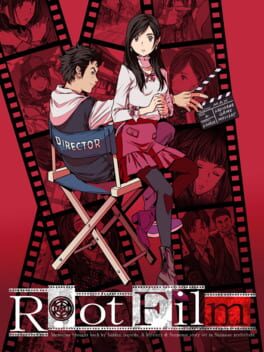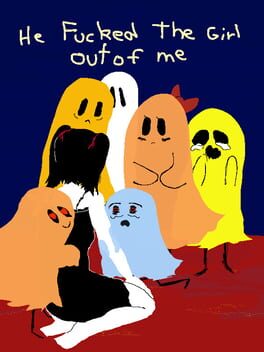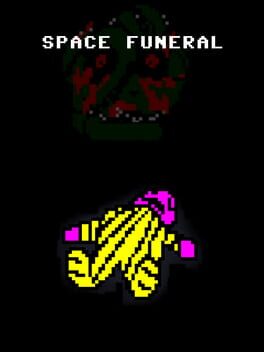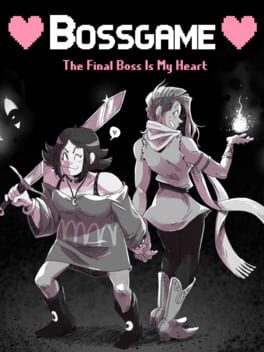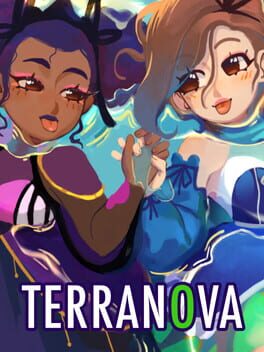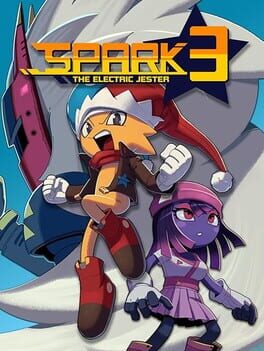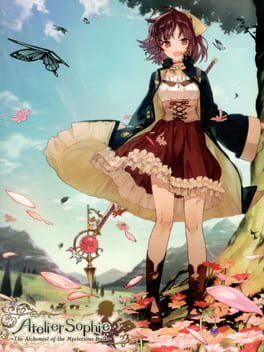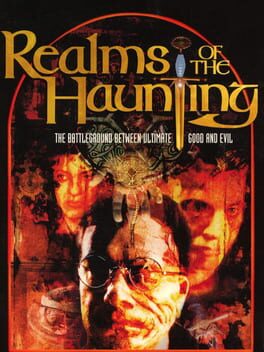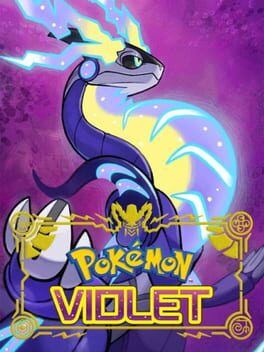wingXblade
CNs for The Legend of Nayuta: Boundless Trails: sexual harassment, kidnapping, mind control.
Masters of the PSP Nihon Falcom send off the console with this behemoth and extremely video-game-y video game. Nayuta is a smash cut of middle-era laser dance and combo chain Ys combat, the social sim-gazing side-quests of the Zemuria Legends of Heroes games, and the Zweii style exploration sprinkled over some very humble 3D platforming. This is an ARPG that is pretty conventional in narrative to create the space needed to refine the small scale low-stakes endeavor that gets dropped after each new Zemuria arc begins. Nayuta does very simple yet breathtaking things to place a high(er) fantasy world rendered as a conventional level select screen in relation to a small and mostly un-changing hub village chapter-to-chapter: the youngest village boy is nowhere to be found, some visiting artists come your backwaters island, or someone else is suddenly helping you with your boxed lunches in your elder sister's absence. Your village vibrates in very slight ways while the attached fantasy world expands in typical "Forest, mushroom, ice, lava" fashion; it's been hollowed out by meta-physical family drama that echoes into and wraps around the petty domestic woes of your village. A very healthy and moderate kind of mission collectable will have you running from the placement focused anti-flash dodge combat zones to go back to the village to sell some bugs, cook your lunch, and train with the master of your runaway chosen-family-brother/boyfriend. The Legend of Nayuta is a fine tuned gem for those who love the imagination space between classic DQ dungeons, anyone into slow slice of life character work, and for everyone looking for something unbespoke and earnest from their RPGs in a post Nier:Automata/cinematic games release landscape.
Masters of the PSP Nihon Falcom send off the console with this behemoth and extremely video-game-y video game. Nayuta is a smash cut of middle-era laser dance and combo chain Ys combat, the social sim-gazing side-quests of the Zemuria Legends of Heroes games, and the Zweii style exploration sprinkled over some very humble 3D platforming. This is an ARPG that is pretty conventional in narrative to create the space needed to refine the small scale low-stakes endeavor that gets dropped after each new Zemuria arc begins. Nayuta does very simple yet breathtaking things to place a high(er) fantasy world rendered as a conventional level select screen in relation to a small and mostly un-changing hub village chapter-to-chapter: the youngest village boy is nowhere to be found, some visiting artists come your backwaters island, or someone else is suddenly helping you with your boxed lunches in your elder sister's absence. Your village vibrates in very slight ways while the attached fantasy world expands in typical "Forest, mushroom, ice, lava" fashion; it's been hollowed out by meta-physical family drama that echoes into and wraps around the petty domestic woes of your village. A very healthy and moderate kind of mission collectable will have you running from the placement focused anti-flash dodge combat zones to go back to the village to sell some bugs, cook your lunch, and train with the master of your runaway chosen-family-brother/boyfriend. The Legend of Nayuta is a fine tuned gem for those who love the imagination space between classic DQ dungeons, anyone into slow slice of life character work, and for everyone looking for something unbespoke and earnest from their RPGs in a post Nier:Automata/cinematic games release landscape.
2022
A puzzle and platforming game (not a puzzle-platformer) surrounding an unconventional sci-fi workplace drama. Three scientists confront the red tape of international research, the constraints of careerism, the material content of their lives, their relationship with each other, and also an emerging alien existential and viral threat to the planet. I had a lot of apprehension at the size of this game and the breadth of subject matter is pulling in, but this is maybe my favorite container for the Analgesic team's prose. Some of the jumps fucking blow and the camera is a constant antagonist as it always is in our current era of 3D platformers, but the accessibility options offer a wide gradient of curating difficulty such that anyone should have a good time.
Moving between methodical platforming to color match puzzle games is, at once, disorienting and perfectly connected. The emotional overture of this game is largely about the capability for adaptation all life has and the eventual ease of snapping between disparate Video Game Challenges drives this home so so well. The whole "middle class people with a lot of resources realize they can imagine and design actionable steps for a better world" will always be a weak narrative goal for me, but the kind of dilemmas of the workplace and nationalism that haunt these characters is delivered in the described gameplay loop that has linked the often overly-dreamlike prose to reality.
Moving between methodical platforming to color match puzzle games is, at once, disorienting and perfectly connected. The emotional overture of this game is largely about the capability for adaptation all life has and the eventual ease of snapping between disparate Video Game Challenges drives this home so so well. The whole "middle class people with a lot of resources realize they can imagine and design actionable steps for a better world" will always be a weak narrative goal for me, but the kind of dilemmas of the workplace and nationalism that haunt these characters is delivered in the described gameplay loop that has linked the often overly-dreamlike prose to reality.
CWs for What Heart Heard Of, Ghost Guessed: descriptions of violence, child abuse, depictions of ableism, burning alive.
A parser adventure ghost story about unraveling some recent events surrounding a Victorian-ish estate as the ghost. This game is really clever in how it economizes the usual lock and key puzzles of parser games. You receive non-standard verbs in the form of remembered emotions and memories, which neatly resolves the issue many adventure games have of the puzzles being complete non-sequitur. Because of the genre space the game is working in, it's capability to do something more with discussing child abuse and disability is really not that sophisticated, but the game contextualizes the tropes it does go for with sympathy. The mounting pace, the modest length, and a carefully measured hint resource make for a really killer experience.
A parser adventure ghost story about unraveling some recent events surrounding a Victorian-ish estate as the ghost. This game is really clever in how it economizes the usual lock and key puzzles of parser games. You receive non-standard verbs in the form of remembered emotions and memories, which neatly resolves the issue many adventure games have of the puzzles being complete non-sequitur. Because of the genre space the game is working in, it's capability to do something more with discussing child abuse and disability is really not that sophisticated, but the game contextualizes the tropes it does go for with sympathy. The mounting pace, the modest length, and a carefully measured hint resource make for a really killer experience.
2022
Another fluffy yet breakneck release from my favorite arcade style dev publishing on itch. Cielclou is a browser boomer shooter dragged through technicolored Unity basic shapes and yume kawaii. The saccharine bubly music, otherwordly art, and a vibrantly developed sfx library that gets used in all of nizikashii's releases dramatically blow down walls of the 15-20 minute browser game container. Nizikashii continues to make games that are exciting, challenging, and endlessly delightful without ever burdening them with a bunch of mechanical technicalities. Go to naizakashii's itch page, click on any game and have a fucking blast.
2021
CNs for Vampire Survivors: cartoon blood and animal violence
A witty little reduction of classic action games where all you need to do is stand in the right place and hit the hit button at the right time, only they've taken out the hit button. It's really fun fighting for your life as you figure out how builds work and save up for upgrades and then it's just as fun negotiating your loadout to press forward uninterrupted. The way this game actually has explicit levels is really lovely and seems to fall to the side when this game is discussed. I maxed out my positive upgraded, unlocked all the characters and then put this one aside. Vampire Survivors has really charitable solutions to leaving a trail to secrets but it's just not my thing! I think the builds being very open-ended is good fun, but it also ends up making the game a very unspecific classic-vania homage toy. Interested in seeing where this genre goes in the next five years but will probably be checking out while it's in the cash in copy phase.
A witty little reduction of classic action games where all you need to do is stand in the right place and hit the hit button at the right time, only they've taken out the hit button. It's really fun fighting for your life as you figure out how builds work and save up for upgrades and then it's just as fun negotiating your loadout to press forward uninterrupted. The way this game actually has explicit levels is really lovely and seems to fall to the side when this game is discussed. I maxed out my positive upgraded, unlocked all the characters and then put this one aside. Vampire Survivors has really charitable solutions to leaving a trail to secrets but it's just not my thing! I think the builds being very open-ended is good fun, but it also ends up making the game a very unspecific classic-vania homage toy. Interested in seeing where this genre goes in the next five years but will probably be checking out while it's in the cash in copy phase.
2020
CWs for Root Film: Sui*, spousal abuse, gaslighting, falling from great heights, traffic accidents, emotional manipulation, drowning, blood, graphic wounds, body horror, torture, asphyxiation.
Root Film, despite seeming like a wide turn from it's extremely pastoral predecessor, is mostly a very chill workplace comedy adventure novel game about small actors and directors working in made for tv mystery films who accidentally stumble into various mysteries and then actual murder cases. Both perspective characters Yagumo and Riho are a delight, having really snappy rapport with the supporting cast without ever sneering into the camera for a quip or belaboring the genre tropes the game is often quietly building upon. The Root games continuing to be about adults who have jobs in a specific town or city that then end up in situations is a really grounding approach to character and scenario writing that is really absent in novel games and games as a whole and ultimately makes these games really phenomenal despite also being extremely average.
The mystery solving and adventure game stuff is cleaned up a lot from Root Letter. They've dialed back the fucked up volume of locations to keep in order and have made the chapter culminations really simple affair, sitting somewhere between Ace Attorney Investigation's Logic Chess and the evidence bullets of Danganronpa trials. The steps to win these cross examinations are much more slight, but really it's better that you only have to prove like three or four argument points because the game is otherwise a breezy affair. I dislike how the tone of the overarching mystery develops against my taste and what I liked the most about the first game, but the way it builds and uses the all of the game's formal and promotional material is exciting when it does finally let you give answers. This is a really smart follow up to Root Letter that answers a lot of shortcomings of that game while still keeping the same low key identity that makes that game stand out.
Root Film, despite seeming like a wide turn from it's extremely pastoral predecessor, is mostly a very chill workplace comedy adventure novel game about small actors and directors working in made for tv mystery films who accidentally stumble into various mysteries and then actual murder cases. Both perspective characters Yagumo and Riho are a delight, having really snappy rapport with the supporting cast without ever sneering into the camera for a quip or belaboring the genre tropes the game is often quietly building upon. The Root games continuing to be about adults who have jobs in a specific town or city that then end up in situations is a really grounding approach to character and scenario writing that is really absent in novel games and games as a whole and ultimately makes these games really phenomenal despite also being extremely average.
The mystery solving and adventure game stuff is cleaned up a lot from Root Letter. They've dialed back the fucked up volume of locations to keep in order and have made the chapter culminations really simple affair, sitting somewhere between Ace Attorney Investigation's Logic Chess and the evidence bullets of Danganronpa trials. The steps to win these cross examinations are much more slight, but really it's better that you only have to prove like three or four argument points because the game is otherwise a breezy affair. I dislike how the tone of the overarching mystery develops against my taste and what I liked the most about the first game, but the way it builds and uses the all of the game's formal and promotional material is exciting when it does finally let you give answers. This is a really smart follow up to Root Letter that answers a lot of shortcomings of that game while still keeping the same low key identity that makes that game stand out.
CWs for He Fucked the Girl Out of Me as by Taylor McCue: non-consensual sex, ambiguous consent, rape, date rape, sex, nudity, specification kink, transphobia, deadnaming, age gap, abuse, suicidal ideation, blood.
A semi-autobiographical elegy to trauma from sex work that lives on still. He Fucked the Girl Out of Me strings together scenes of various tasks of a certain kind of sex work layered over each other. They're assembled not to tell the story of the past, but to invoke the feeling of the trauma they've left behind suddenly washing over you. Little moments, like a seeing a flavor of chip at the convenience store, always bring you back.
The major scenes here are commanding and effective in these aims. I think there's a somewhat narrow idea of about trauma and sex work as things which exist in the world packaged here, but Taylor addresses this at the top as not really being the point so I can't really be too bothered about it. This game confers a really textured sensation of trauma and emotional response with a simple tool like GB Studio and to a degree which the cinematic formula that hangs over games just cannot do.
A semi-autobiographical elegy to trauma from sex work that lives on still. He Fucked the Girl Out of Me strings together scenes of various tasks of a certain kind of sex work layered over each other. They're assembled not to tell the story of the past, but to invoke the feeling of the trauma they've left behind suddenly washing over you. Little moments, like a seeing a flavor of chip at the convenience store, always bring you back.
The major scenes here are commanding and effective in these aims. I think there's a somewhat narrow idea of about trauma and sex work as things which exist in the world packaged here, but Taylor addresses this at the top as not really being the point so I can't really be too bothered about it. This game confers a really textured sensation of trauma and emotional response with a simple tool like GB Studio and to a degree which the cinematic formula that hangs over games just cannot do.
2010
CNs for Space Funeral: graphic wounds, gore, child abuse, body horror, sui*
An intoxicating and mysterious RPG that muddles through broad thoughts on suicidal ideation and how one comes to understand what society thinks of their worth. The look and soundscape of this game are extremely evocative formal embellishments on a very conventional approach. What is an extremely straight path frequently compels you to take in the bloody decaying sights. The world is deeply confusing but you know how to continue walking forward. Equipment seems to do nothing and sickeningly absurd weakness mechanics exist but really don't matter when you can crit every third attack. A thin and uncomfortable shell of a world trickles down to every gear of the game.
I'm pretty up and down on thecatamites and extremely at arms length when it comes to this kind of disaffected, individualistic, abstracted, and nihilistic depiction of the world that hangs over games from a supposed left, but Space Funeral is precise and throbbing and oozing and maddening. You'd think it'd be lame as shit for someone to read Baudelaire over your RPG dungeon traversal, but I'm here to tell you that it's sick as shit.
An intoxicating and mysterious RPG that muddles through broad thoughts on suicidal ideation and how one comes to understand what society thinks of their worth. The look and soundscape of this game are extremely evocative formal embellishments on a very conventional approach. What is an extremely straight path frequently compels you to take in the bloody decaying sights. The world is deeply confusing but you know how to continue walking forward. Equipment seems to do nothing and sickeningly absurd weakness mechanics exist but really don't matter when you can crit every third attack. A thin and uncomfortable shell of a world trickles down to every gear of the game.
I'm pretty up and down on thecatamites and extremely at arms length when it comes to this kind of disaffected, individualistic, abstracted, and nihilistic depiction of the world that hangs over games from a supposed left, but Space Funeral is precise and throbbing and oozing and maddening. You'd think it'd be lame as shit for someone to read Baudelaire over your RPG dungeon traversal, but I'm here to tell you that it's sick as shit.
CWs for Bossgame: The Final Boss is My Heart: implied transphobia, child-parent abuse
Fluffy but challenging rom-com fantasy action game targeting mobile release. The controls and boss mechanics fall right into your hand like your favorite Flash game probably did. The flirty-shy wlw couple at the center of the game is earnest and cute where most other writers struggle to stay believable or avoid being insufferable. The plot takes no big swings and is better for it, with a melange of JRPG and shounen plot beats smooshed into very little dialogue, retro 1st person RPG encounter views, and dialogue driven novel game segments. The perfect game to squeeze in a chapter of on your break at work.
Fluffy but challenging rom-com fantasy action game targeting mobile release. The controls and boss mechanics fall right into your hand like your favorite Flash game probably did. The flirty-shy wlw couple at the center of the game is earnest and cute where most other writers struggle to stay believable or avoid being insufferable. The plot takes no big swings and is better for it, with a melange of JRPG and shounen plot beats smooshed into very little dialogue, retro 1st person RPG encounter views, and dialogue driven novel game segments. The perfect game to squeeze in a chapter of on your break at work.
2020
CWs for Terranova: eating disorders, gaslighting, homophobia, child abuse
A narrative game deeply committed to simulation of chat clients and RP communities in the mid-aughts, Terranova is often landing the bit at the expense of delivering cohesive character arcs. Reading chats and drafting my blog posts are really sublime at the writing and especially the interface level, but there's a common route you're forced onto that really runs in the face of most expression choices available. The top half of this game (which is all I speak to because I ended with the game in an unplayable state) feels like actual personal memories of the he/him lesbian RPers I knew in high school ripped from my brain before forcing an abrupt turn to make everyone hate each other like it's a CLAMP doujin. This is a really interesting project and I'd love to see this engine refined for something else, but this game is missing tact in design and writing that YA fiction direly needs.
A narrative game deeply committed to simulation of chat clients and RP communities in the mid-aughts, Terranova is often landing the bit at the expense of delivering cohesive character arcs. Reading chats and drafting my blog posts are really sublime at the writing and especially the interface level, but there's a common route you're forced onto that really runs in the face of most expression choices available. The top half of this game (which is all I speak to because I ended with the game in an unplayable state) feels like actual personal memories of the he/him lesbian RPers I knew in high school ripped from my brain before forcing an abrupt turn to make everyone hate each other like it's a CLAMP doujin. This is a really interesting project and I'd love to see this engine refined for something else, but this game is missing tact in design and writing that YA fiction direly needs.
CWs for Spark the Electric Jester 3: body horror, sui* mention
True to the 3D Sonic form, Spark the Electric Jester 3 is a collection of the most sublime moments I've ever had going fast in a video game spaced out by the most frustrating, inane, or annoying. There are like 6-8 stages that are perfectly designed for your full suite of platforming tools and then everything else ranges from mixed bag to nauseating twitchy busy work. The most frustrating is frequently being handed very open stages only to be punished for trying to relive the opening rail skip from Final Rush after being so clearly invited.
Despite the rough patches, the core movement and the exciting level design tenants keeps even the most frustrating moments brief. Blazing down the obvious path or figuring out a route to skip a third of the stage are a delight. Spark himself is fun, cool, silly, radical, but serious in a way mascot characters like the blue blur himself isn't afforded anymore. There are swings in plot and cutscene direction that are oozing with such style and love that I can't even get mad when it's suddenly doing an end of TV broadcast Eva ripoff out of fucking nowhere. Spark 3 is an unskippable release for fans of running around at the speed of sound, rapidly weaving the thread of the Adventure games through a scrap bin of anime and JRPG ridiculousness.
True to the 3D Sonic form, Spark the Electric Jester 3 is a collection of the most sublime moments I've ever had going fast in a video game spaced out by the most frustrating, inane, or annoying. There are like 6-8 stages that are perfectly designed for your full suite of platforming tools and then everything else ranges from mixed bag to nauseating twitchy busy work. The most frustrating is frequently being handed very open stages only to be punished for trying to relive the opening rail skip from Final Rush after being so clearly invited.
Despite the rough patches, the core movement and the exciting level design tenants keeps even the most frustrating moments brief. Blazing down the obvious path or figuring out a route to skip a third of the stage are a delight. Spark himself is fun, cool, silly, radical, but serious in a way mascot characters like the blue blur himself isn't afforded anymore. There are swings in plot and cutscene direction that are oozing with such style and love that I can't even get mad when it's suddenly doing an end of TV broadcast Eva ripoff out of fucking nowhere. Spark 3 is an unskippable release for fans of running around at the speed of sound, rapidly weaving the thread of the Adventure games through a scrap bin of anime and JRPG ridiculousness.
CWs for Zero Escape: Nine Hours, Nine Persons, Nine Doors: blood, graphic injury, sexual harassment, kidnapping, sedation, child death.
Uchikoshi's directorial debut is maybe his best version of his one trick. A touchdown of a DS exclusive, 999 plays on reader assumptions based in game logic, hardware, and UI to neatly wrap them into earnestly pulpy character beats. The feelings of piecing together a mystery for someone doing 0 detective guesswork have never been mechanized better. There are no end goals or bigger statements, but the metanarrative moves are evocative enough that the whole game is supported.
I've been tricked into podcasting about this franchise! Listen to our episode closing out 999.
Uchikoshi's directorial debut is maybe his best version of his one trick. A touchdown of a DS exclusive, 999 plays on reader assumptions based in game logic, hardware, and UI to neatly wrap them into earnestly pulpy character beats. The feelings of piecing together a mystery for someone doing 0 detective guesswork have never been mechanized better. There are no end goals or bigger statements, but the metanarrative moves are evocative enough that the whole game is supported.
I've been tricked into podcasting about this franchise! Listen to our episode closing out 999.
CWs for Atelier Sophie: The Alchemist of the Mysterious Book: fatphobia, body horror.
A painfully middling Atelier release, Sophie has the strong character beats you can count on from the franchise but makes understanding alchemy and gear progression far too muddy in trying to re-frame modern Atelier's more casual design choices. There's fewer hard alchemy checks here, producing a more chill moment to moment game until sudden and completely avoidable difficulty spikes send you to do alchemy catch-up on a bunch of crap that you didn't really have a need for. I love my lesbian book doll girlies and I like the attempt to keep the game rural, but I've never had a worse time with exploring or alchemy in one of these games.
A painfully middling Atelier release, Sophie has the strong character beats you can count on from the franchise but makes understanding alchemy and gear progression far too muddy in trying to re-frame modern Atelier's more casual design choices. There's fewer hard alchemy checks here, producing a more chill moment to moment game until sudden and completely avoidable difficulty spikes send you to do alchemy catch-up on a bunch of crap that you didn't really have a need for. I love my lesbian book doll girlies and I like the attempt to keep the game rural, but I've never had a worse time with exploring or alchemy in one of these games.
2022
CWs for Pokemon Violet: parent-child abandonment, bullying
Mine and many others return to the franchise, Violet has been in the cards since the jump to 3D. All games funneling towards the open world service model is definitely signs of a global decay state, but this one is pretty fine! 3D finally makes sense for Gamefreak with sectioned regions mostly organized by well disguised and only slightly branching paths. The strange theme park tracks we've been subjected to since XY are no more and instead there's just many organic Pokemon routes slapped together. The regional dex being 400 entries isn't really my taste and it can feel messy at times because the choice of sequence, but this is both a tight return to Pokemon as a road trip as well as a freeform open world adventure.
Mine and many others return to the franchise, Violet has been in the cards since the jump to 3D. All games funneling towards the open world service model is definitely signs of a global decay state, but this one is pretty fine! 3D finally makes sense for Gamefreak with sectioned regions mostly organized by well disguised and only slightly branching paths. The strange theme park tracks we've been subjected to since XY are no more and instead there's just many organic Pokemon routes slapped together. The regional dex being 400 entries isn't really my taste and it can feel messy at times because the choice of sequence, but this is both a tight return to Pokemon as a road trip as well as a freeform open world adventure.
